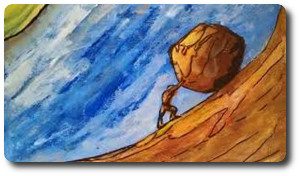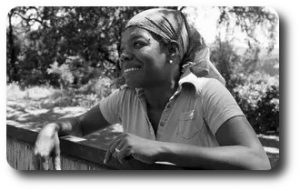 One of the privileges of working as a trainer for PartnershipProjects is traveling around the UK, meeting practitioners from various settings and learning about them and the communities they serve. Over the past few months I have spent time in the North of England, the Midlands and the West Country, and I’m beginning to notice some disturbing things. Our wonderful health and social care workforce is so very, very tired – weariness and at times hopelessness is engulfing staff as the impact of 8 years of austerity takes root. Workers tell me of constant re-organisation of teams and services, cutbacks in resources and rising street violence, knife crime, poverty, homelessness, suicide, self-harm and chronic anxiety in children and young people. All too often, NVR training is commissioned in the hope that it will be a panacea to all of this. There is a feeling that these are desperate times.
One of the privileges of working as a trainer for PartnershipProjects is traveling around the UK, meeting practitioners from various settings and learning about them and the communities they serve. Over the past few months I have spent time in the North of England, the Midlands and the West Country, and I’m beginning to notice some disturbing things. Our wonderful health and social care workforce is so very, very tired – weariness and at times hopelessness is engulfing staff as the impact of 8 years of austerity takes root. Workers tell me of constant re-organisation of teams and services, cutbacks in resources and rising street violence, knife crime, poverty, homelessness, suicide, self-harm and chronic anxiety in children and young people. All too often, NVR training is commissioned in the hope that it will be a panacea to all of this. There is a feeling that these are desperate times.
I have been wondering a great deal about what I am seeing and experiencing in the staff I train. I am a passionate advocate of what NVR can do for families and equally for the practitioners who are open to the approach. I notice the disparity between my sense of hope and my levels, and the hope and energy levels of those I am meeting. I credit NVR with being much of the fuel to my sense of agency in my work.
I do not feel stuck or wearied by the work; on the contrary, I feel energized by its possibilities (and by the way, I also work in a local CAMHS team part time and some of this work is with the Community Intensive Therapy Team, a specialist team within specialist CAMHS working with the most high risk young people and their families.) The geographical area I work in is one of the most economically and socially deprived in the UK, but I am becoming more skilled in being able to think how NVR can fit with the families I meet. Just yesterday a father was telling me about his frustrations with his teenage son and the battles they get into.
He began crying as we gently explored what his dreams are for his boy and what he is fighting for. Within this conversation  was space for considering how he might step back from attempts to control his child through force and move instead to a place of guidance, acceptance and re-connection. A discussion also took place with him and his wife about the strength of making a choice to act differently, that this isn’t weak and passive on their part, but proactive. They were wholly engaged in this exploration, delighted by the thought of having choices and by the idea of ‘striking the iron when it is cold’.
was space for considering how he might step back from attempts to control his child through force and move instead to a place of guidance, acceptance and re-connection. A discussion also took place with him and his wife about the strength of making a choice to act differently, that this isn’t weak and passive on their part, but proactive. They were wholly engaged in this exploration, delighted by the thought of having choices and by the idea of ‘striking the iron when it is cold’.
On paper, this family would be one of those which a worker may feel hopeless and demoralized about. They are unemployed, live in social housing on one of the most notorious estates in the locality. The father is 50 now; a smoker all his life, he shows the ravages of a hard life.
The mother has had a life dedicated to her family. She is a grandmother at 46 and 2 of her children are diagnosed with autism. And yet…here we were talking with hope; I was learning about their dreams for their children and themselves and together we were making plans for small acts of resistance and re-connection. We started small and did so because I, as their worker, dared to dream too.
This family share all the human qualities just like me, and therefore I believe we share hopes that things could be different. My job was to search this out and to amplify the possibilities for change. Sometimes I feel that just the act of sitting and really hearing and seeing the struggles a family is going through is political. The experience of really being noticed and not judged but appreciated is hugely powerful. This, I believe, is where NVR starts -in this resistance to blame, hopelessness and defeat on the part of the worker.
 I also believe we must resist the tendency to commodity our work force of dedicated professionals and treat the professionals working in this very challenging area with more compassion and respect. We need to really cherish our health and social workforce so much more. Managers could better support staff to take good care of themselves; if the staff are not well, they cannot do the very difficult jobs they are asked to.
I also believe we must resist the tendency to commodity our work force of dedicated professionals and treat the professionals working in this very challenging area with more compassion and respect. We need to really cherish our health and social workforce so much more. Managers could better support staff to take good care of themselves; if the staff are not well, they cannot do the very difficult jobs they are asked to.
Staff need to take responsibility for their own health and well being – resist using alcohol, drugs etc. as coping mechanisms and value rest and recuperation opportunities. Of course, we are all subject to the same social and cultural forces which affect our clients and many of the people on the workforce are suffering the same injustices and privations as the families we work with. I believe NVR is a way of life which allows us to face the challenges and problems of living we all experience in a way which allows us to bear suffering and connect with our strength and sense of personal agency.
As I have got older, the things which nourish me are changing and I am increasingly turning to the comforts of poetry to guide me. I love Maya Angelou, and in particular her poem ‘And Still I Rise’. It is about the experience of slavery and the experience of getting up each day in the face of oppression and living as if things were different. Here it is in full as my little gift of hope to sustain us.
‘AND STILL I RISE’
By Maya Angelou.
You may write me down in history
With your bitter, twisted lies,
You may tread me in the very dirt
But still, like dust, I’ll rise.
Does my sassiness upset you?
Why are you beset with gloom?
‘Cause I walk like I’ve got oil wells
Pumping in my living room.
Just like moons and like suns,
With the certainty of tides,
Just like hopes springing high,
Still I’ll rise.
Did you want to see me broken?
Bowed head and lowered eyes?
Shoulders falling down like teardrops.
Weakened by my soulful cries.
Does my haughtiness offend you?
Don’t you take it awful hard
‘Cause I laugh like I’ve got gold mines
Diggin’ in my own back yard.
You may shoot me with your words,
You may cut me with your eyes,
You may kill me with your hatefulness,
But still, like air, I’ll rise.
Does my sexiness upset you?
Does it come as a surprise
That I dance like I’ve got diamonds
At the meeting of my thighs?
Out of the huts of history’s shame
I rise
Up from a past that’s rooted in pain
I rise
I’m a black ocean, leaping and wide,
Welling and swelling I bear in the tide.
Leaving behind nights of terror and fear
I rise
Into a daybreak that’s wondrously clear
I rise
Bringing the gifts that my ancestors gave,
I am the dream and the hope of the slave.
I rise
I rise
I rise.
Jill Lubienski
Systemic Psychotherapist & Social Worker


